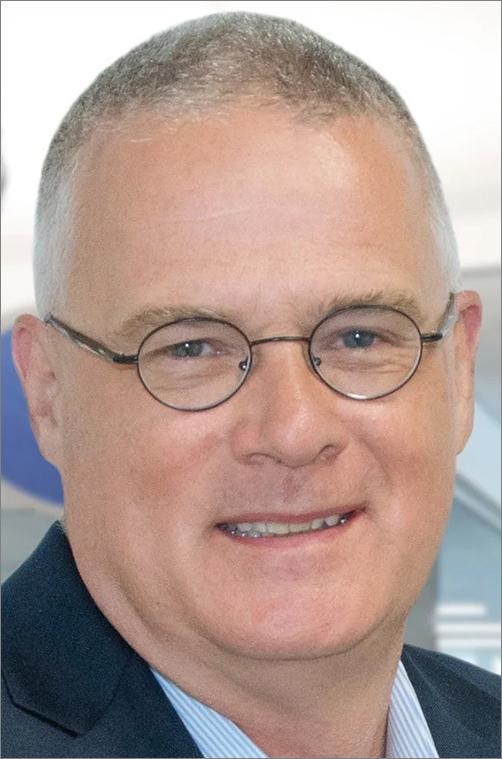ECRI Study Finds Errors During Testing Processes Are Responsible for Most Diagnostic Errors
Researchers note that many sources of errors associated with diagnostic testing involve how providers order tests and how specimens are handled
ECRI (Emergency Care Research Institute), a non-profit organization that focuses on healthcare quality and patient safety, has released results from a study which lays blame for most diagnostic errors on systemic issues that arise during clinical laboratory, radiology, and other diagnostic testing processes. These issues relate to “ordering, collecting, processing, obtaining results, or communicating results,” the organization stated in a news release.
“It’s a common misconception that if a patient has a missed or incorrect diagnosis, their doctor came up with the wrong hypothesis after having all the facts,” said ECRI President and CEO Marcus Schabacker MD, PhD, in the news release. “That does happen occasionally, but we found that was tied to less than 3% of diagnostic errors. What’s more likely to break the diagnostic process are technical, administrative, and communication-related issues. These represent system failures, where many small mistakes lead to one big mistake.”
The researchers based their analysis on reports of adverse patient safety events and “near-misses” submitted to ECRI and the Institute for Safe Medication Practices (ISMP) in 2023. Healthcare providers submitted the data from across the US, ECRI noted.
From a total of 3,014 patient safety events, ECRI determined that 1,011 were related to diagnostic errors. Then, it sorted the events based on “the appropriate step in the diagnostic process where the breakdown occurred,” according to the news release.
ECRI did not reveal how many errors were related to clinical laboratory testing as opposed to radiological or ultrasound imaging.

“The problem of diagnostic safety comes down to the lack of a systems-based approach,” said ECRI President and CEO Marcus Schabacker MD, PhD (above), in a news release. “Since there are multiple potential failure points, a single intervention is insufficient.” Diagnostic errors can also include imaging/radiology and other types of diagnostic procedures—not just clinical laboratory tests. (Photo copyright: ECRI.)
Where Errors Occur
According to ECRI’s analysis, the largest number of errors by far (nearly 70%) happened during the clinical laboratory testing process. Among these, “more than 23% were a result of a technical or processing error, like the misuse of testing equipment, a poorly processed specimen, or a clinician lacking the proper skill to conduct the test,” ECRI stated. “Another 20% of testing errors were a result of mixed-up samples, mislabeled specimens, and tests performed on the wrong patient.”
Outside the testing process, other errors occurred during monitoring and follow-up (12%) and during referral and consultation (9%).
One major factor behind diagnostic errors, ECRI noted, was miscommunication among providers and between providers and patients.
The organization also cited “productivity pressures that prevent providers from exploring all investigative options or from consulting other providers” as leading to diagnostic errors.
In some cases, providers who ordered lab tests delayed reviewing the results or the patients were not notified of the results.
“Referrals to specialists or requests for additional consultations can complicate the process, presenting more potential failure points,” ECRI noted.
Troubling Imaging Anecdotes, Previous Studies
The ECRI news release cites two de-identified patient stories, both related to imaging. One case involved a woman who “experienced abdominal pain and abnormal vaginal bleeding,” but a diagnosis of uterine cancer was delayed nearly a year. “MRIs were ordered, but not all the results were reviewed, as her symptoms worsened. Despite masses being detected on an ultrasound, a missed appointment and communication barriers delayed her diagnosis. She was finally diagnosed after severe pain led to hospitalization.”
In one “near-miss” incident, a patient did not receive an essential carotid ultrasound procedure prior to being scheduled for open-heart surgery. Staff caught the omission and canceled the surgery. A later ultrasound “revealed he would have had a catastrophic surgical outcome if the surgery had proceeded as scheduled,” ECRI stated.
Two earlier studies noted in the news release highlight the impact of diagnostic errors.
A 2017 study, published in the journal BMJ Quality Safety, estimated that diagnostic errors affect approximately 5% of US adults—a total of 12 million—each year. In that paper, the authors combined estimates from three observational studies that defined diagnostic error in similar ways.
“Based upon previous work, we estimate that about half of these errors could potentially be harmful,” the authors wrote.
And a 2024 study published in the same journal estimated that 795,000 Americans die or become permanently disabled each year due to misdiagnosis of dangerous diseases. “Just 15 diseases account for about half of all serious harms, so the problem may be more tractable than previously imagined,” the authors wrote.
Recommendations for Providers, Labs
ECRI advised that healthcare providers should adopt a “total systems safety approach and human-factors engineering” to reduce diagnostic errors. This is good advice for clinical laboratories as well.
Specific steps should include “integrating EHR workflows, optimizing testing processes, tracking results, and establishing multidisciplinary diagnostic management teams to analyze safety events,” the news release states.
Schabacker also advised patients to “ask questions to understand why their doctor is ordering tests, and are those tests urgent,” he said. “Schedule your appointments and tests quickly and follow up with your provider if you’re awaiting results. If possible, ask a family member or friend to join you in important appointments, to help ask questions and take notes.”
Clinical laboratory managers have been alerted to the involvement of lab testing in incidents of medical errors. This report by ECRI is more evidence of the gaps in care delivery that often contribute to medical error. Medical lab professionals may want to review the ECRI report to learn more about what the authors identify as the specific breakdowns in care processes that contribute to medical errors.
—Stephen Beale
Related Information:
Data Analysis Reveals Common Errors That Prevent Patients from Getting Timely, Accurate Diagnoses



